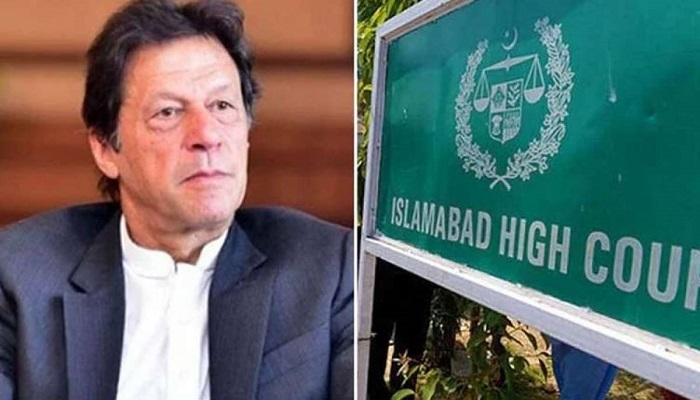ISLAMABAD: The Islamabad High Court (IHC) dismissed a petition filed by imprisoned Pakistan Tehreek-e-Insaf (PTI) founder Imran Khan on Thursday, seeking the suspension of the trial court’s verdict in the Toshakhana case.
On August 5, Additional District and Sessions Judge (ADSJ) Humayun Dilawar sentenced Imran Khan to three years in prison for graft in the Toshakhana case, accusing him of misusing his position to sell state gifts valued at over Rs140 million ($490,000) received from foreign dignitaries.
Following the conviction, the Election Commission of Pakistan (ECP) disqualified the former prime minister for five years under Section 167 of the Elections Act, 2017. While the IHC suspended Imran Khan’s sentence on August 28, his conviction and disqualification remained in effect. Subsequently, Imran Khan approached the IHC to rectify its August 28 order, seeking the suspension of the trial court’s judgment on August 5.
Today, IHC Chief Justice Amir Farooq and Justice Tariq Mahmour Jahangiri announced the reserved verdict, rejecting Imran Khan’s petition to suspend the Toshakhana case decision.
[embedpost slug=”imran-khan-will-contest-elections-from-three-constituencies-ghohar/”]
The ruling highlighted the legal constraints on revising or amending a suspended punishment order, referencing the Supreme Court’s stance that suspending a sentence does not imply the suspension of the judgment itself.
The Toshakhana case, involving the sale of state gifts, became a significant political issue after Imran Khan’s disqualification by the ECP for making false statements and incorrect declarations.
The ECP judgment stated that Imran Khan was involved in corrupt practices under sections 167 and 173 of the constitution, leading to a criminal proceeding against him for filing a false statement.
The detailed judgment further mentioned his disqualification under Article 63, 1(P), for submitting a false statement and declaration. Following this, the National Accountability Bureau (NAB) initiated a probe against the former prime minister in the Toshakhana case.
















